As with many human foods, rice is less of a ‘can they?’ and more of a ‘should they?’ type of food for cats.
Technically cats can eat rice since it’s not poisonous or particularly toxic to their metabolism, but their diet cannot be constructed around it.
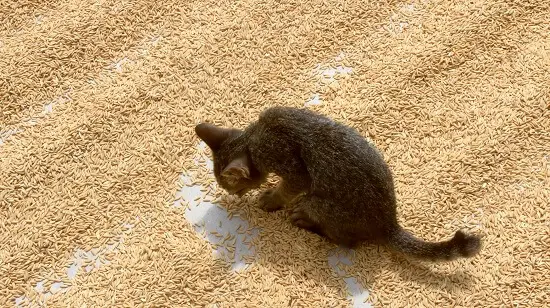
Rice is not part of a cat’s natural diet and as such, should be treated as an occasional treat at best.
Contents
Does rice have nutritional benefits for cats?
No. Cats are obligate carnivores and won’t get any real nutritional benefits from consuming rice.
Well-cooked rice can have some digestive benefits for our feline friends — which is is why some cat food manufacturers can include it in their formulas — but it’s considered a filler and as such should be administered in small quantities, if at all.
Much like low-nutritional foods in humans, just how bad rice can be for a cat depends on their current health status.
If the cat is overweight, for example, it’s not a great idea to give them rice because of the high caloric content and the level of carbohydrates that this grain contains. Excessive rice consumption will adversely affect the animal’s weight in a similar way as it would if we were talking about a human (we recommend you feed overweight cats a high protein zero carbohydrate diet and encourage them to exercise).
Is rice ever recommended for cats?
The only time when rice is advised for cats is when they’re having digestive issues that are manifesting in the form of an upset stomach. Cats have delicate stomachs and when they act up, a very small amount of cooked rice could be recommended as it is much easier to digest for them than alternatives like pasta.
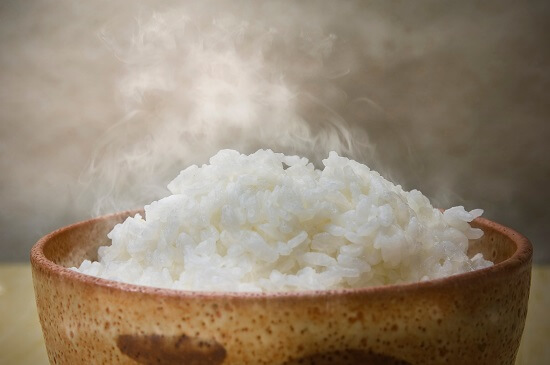
It is okay to use rice to treat symptoms like diarrhoea, but please note that the rice should be plain and prepared without adding anything to it, not even salt.
Rice should be limited to a digestive aid and should not become a regular feature of your pet’s diet.
Is it preferable to give my cat white or brown rice?
Either one is equally fine as long as it’s allowed to soften up while cooking and you didn’t season it or add anything to it during the preparation. Many common human seasonings can be harmful to pets, so they’re better avoided altogether.
What about rice bran?
You should not feed your cat rice bran at all.
While rice bran is beneficial for humans, cats do not need this fibre and it can cause stomach upset. In addition to that, some studies have suggested that rice bran can interfere with the normal metabolizing of taurine which makes it actually dangerous for cats.
Since taurine is essential for a cat’s health, it’s not worth risking such a vital nutrient just to give them fibre they won’t even use.
In what cases should rice be avoided?
Like we mentioned before, it’s not a great idea to feed your overweight cat grains like rice because it can worsen the weight situation.
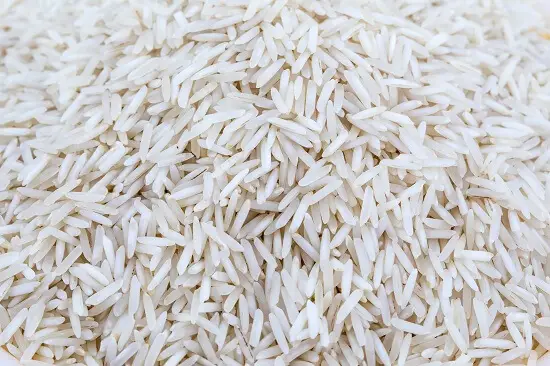
Uncooked rice should always be avoided as it is much harder to digest for a cat, and also because it might have traces of pesticides and other toxins.
Young kittens shouldn’t ever be fed rice because it might stunt their growth, lead to developmental issues, and even cause malnutrition. Not even in cases of diarrhoea should kittens eat rice. Instead, you should talk to your veterinarian about prescribing a suitable option for these young felines.
What are the risks of making rice a big part of my cat’s diet?
Your cat will likely get gas and other annoying digestive issues, but more importantly, they are prone to becoming obese and developing diabetes.
Many feline guardians don’t know this, but cats can get diabetes much like us, and it can be an equally devastating disease for them if not controlled and managed properly. This is why choosing a quality dry food without grains (or limited quantities of grains) is so important for a cat’s health and overall wellbeing.
Why risk your cat’s health by constantly feeding them rice when they don’t even need it? Just don’t do it.
Can I share my fried rice leftovers with my cat?
You should not.
We have established that rice, while relatively safe for adult cats, is far from a recommended food for them.
If we’re talking restaurant rice or even the highly seasoned and greasy kinds of rice you make at home, then you shouldn’t even consider giving your cat any of it. More likely than not, your fried rice contains herbs, legumes and other condiments that are toxic to your feline friend.
Do cats like or crave rice?
Not really, as it’s not something they’d eat in the wild. If anything, they’re curious about seeing you eat it.
So don’t make a habit out of sharing your plate with them. Many of the things we use in our daily meals can actually be dangerous for them.
As an Amazon Associate I may earn a small fee from qualifying purchases at no extra cost to you. This helps us run the site, so thanks for your support!

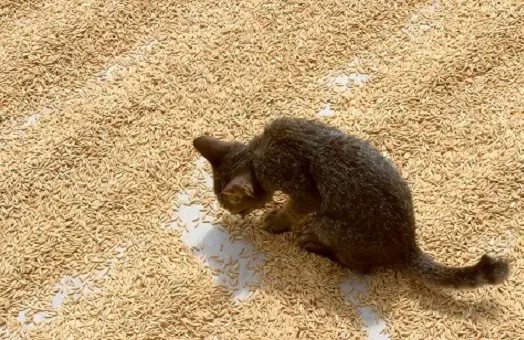
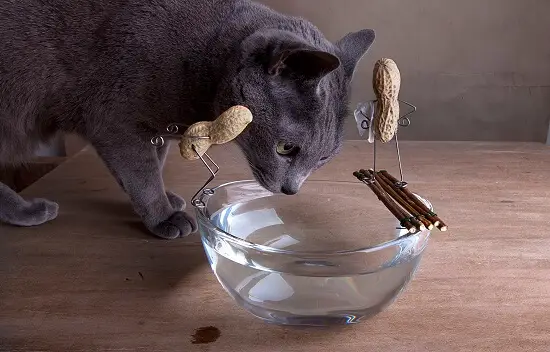
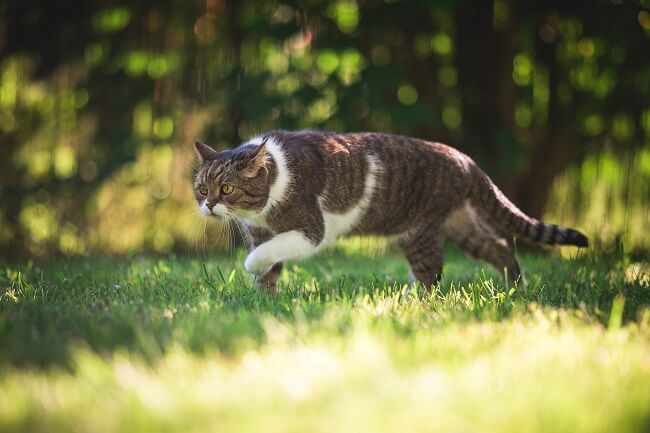

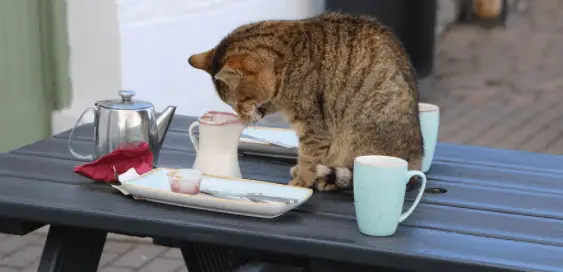


Leave a Comment